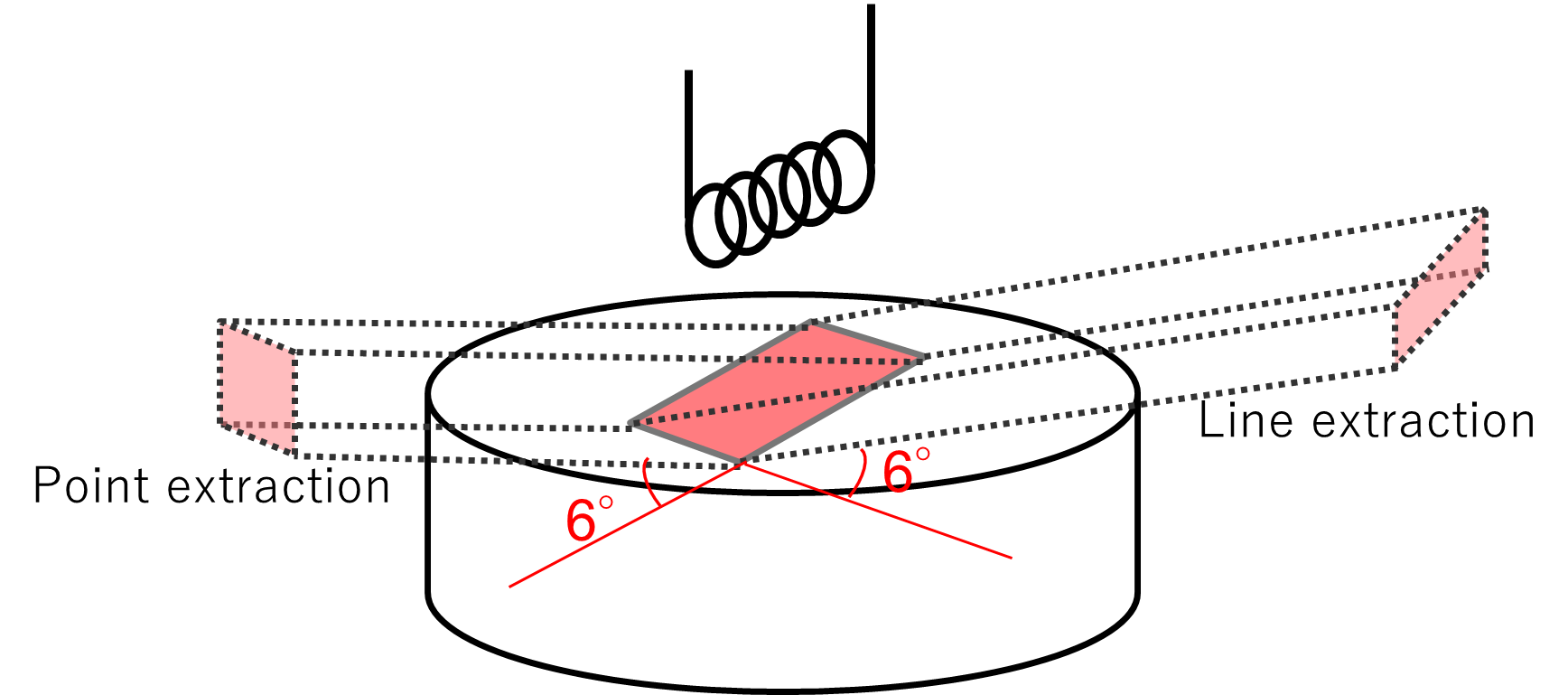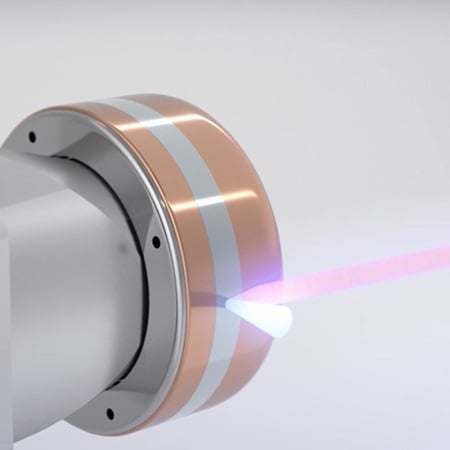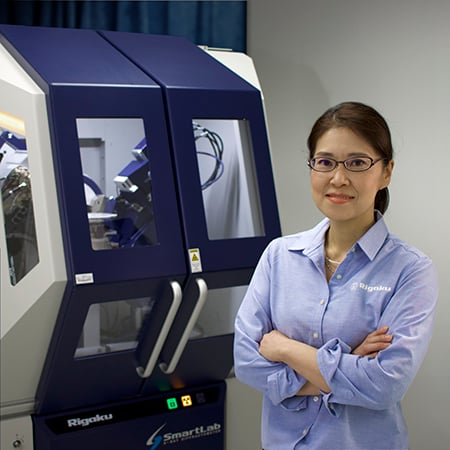Direct Intensity Measurement
In X-ray diffractometers, the “direct intensity” of X-rays emitted from the X-ray source is closely related to accuracy and efficiency of the measurement. Direct intensity refers to the intensity of the X-rays before they reach the sample, and the higher the intensity, the more accurate the data that can be obtained in a shorter time.
There are two types of X-ray diffractometer: synchrotron radiation facilities and laboratory-based diffractometers.
Synchrotron radiation facilities are large research facilities that generate powerful X-ray beams. Here, electrons rotate at high speed in an accelerator to produce extremely high-energy, highly directional X-rays.
Synchrotron radiation facilities are point sources and extremely powerful. They are suitable for detecting low signals from samples. Because of their high direct intensity, they can be used to obtain highly accurate data in a short time, even for difficult measurements of tiny crystals and thin films.
On the other hand, laboratory-type X-ray diffractometers are used in general measurement facilities, and the goniometer is housed in an enclosure to prevent X-ray leakage. There are two types of X-ray extraction : line and point” , as shown in Figure 1, and these are used according to the purpose of the experiment.
A line source emits X-rays in the shape of a strip. so the irradiation area on the sample can be wide, and high-resolution diffraction profiles can be obtained. A parallel beam can be created by attaching a multilayer mirror or channel-cut monochromator. On the other hand, point sources have a higher brightness than line sources and are useful for measuring small areas.
The direct intensity of laboratory-type X-ray diffractometers is significantly lower than that of synchrotron radiation facilities, and measurements may take longer, but because the equipment can be installed relatively easily, it is widely used in research and development, quality control, and manufacturing.

Figure.1 Line extraction and point extraction in laboratory-type X-ray diffractometer

Rigaku recommends the following products

Contact Us
Whether you're interested in getting a quote, want a demo, need technical support, or simply have a question, we're here to help.
